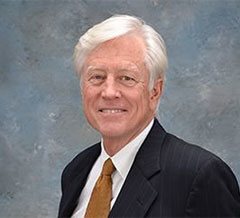Florida Judge Rules that New State Medical Negligence Law is Contrary to Federal Law
In a case that is being monitored closely by Orlando medical malpractice attorneys, a federal judge recently ruled that a new state law is contrary to federal law and expressly preempted by the Health Insurance Portability and Accountability Act (HIPAA). Judge Robert Hinkle, U.S. District Court for the Northern District of Florida, recently ruled that a pre-suit requirement for pursuing medical negligence claims is contrary to federal law and the HIPAA. Under Florida Statute § 766.1065, which went into effect on July 1, a plaintiff wishing to pursue a medical negligence claim must comply with several pre-suit requirements. One of the requirements is that the plaintiff must provide the defendant with notice of the potential claim before the suit is filed. The pre-suit notice must also be accompanied by an authorization signed by the plaintiff that allows the defendant to interview the plaintiff’s health care providers.
We have discussed the interview, (called an ex parte interview in legalese) in previous blog posts, detailing that these interviews must be limited to matters relevant to the potential medical-negligence claim. However, in Murphy v. Dulay, recently heard in Judge Hinkle’s court, the plaintiff argued that federal law preempts Statute § 766.1065, prompting the State of Florida to intervene as a defendant in order to defend the statute. The issue is whether or not a state, through a statute, can require a patient to sign an authorization allowing the potential defendant to interview the patient’s other health care providers. In what could become a very important ruling, Judge Hinkle found that a HIPAA rule expressly preempts state laws that conflict with any rule included in subchapter C of Title 45 of the Code of Federal Regulations and that the new statute clearly is in conflict with this rule.
The defendant’s counsel countered that the rule does not apply to ex parte interviews and that the interviews are in fact compliant with the rule. Judge Hinkle disagreed, explaining that an ex parte interview can only disclose the plaintiff’s health information if:
- (I)t is otherwise permitted or required by subchapter C of Title 45. And,
- (I)t is consistent with a valid authorization.
While every effort has been made to state the facts of this matter in plain language, you can see that it can still be quite difficult to grasp the importance of the legal concepts of this case. This is why many people consult with an experienced Orlando personal injury lawyer such as Mr. Cunningham when they have questions about medical negligence or malpractice they may have suffered. If you feel that you have been injured by a health care provider and have questions about your rights, the law and your legal options, call Mr. Cunningham today at 877-FL-INJURY (877-354-6587) and schedule a free consultation.
James O. Cunningham
 Since 1977, personal injury lawyer James Cunningham has provided effective legal advocacy to people who are injured through the negligent actions of another person or entity throughout the Central Florida area. He fights to obtain recoveries for his clients’ physical and emotional pain and suffering and pursues his clients’ personal injury cases with a commitment to excellence and impeccable preparation.
Since 1977, personal injury lawyer James Cunningham has provided effective legal advocacy to people who are injured through the negligent actions of another person or entity throughout the Central Florida area. He fights to obtain recoveries for his clients’ physical and emotional pain and suffering and pursues his clients’ personal injury cases with a commitment to excellence and impeccable preparation.


 James O. Cunningham
James O. Cunningham  Mr. Cunningham is an excellent and knowledgeable attorney.
Mr. Cunningham is an excellent and knowledgeable attorney.